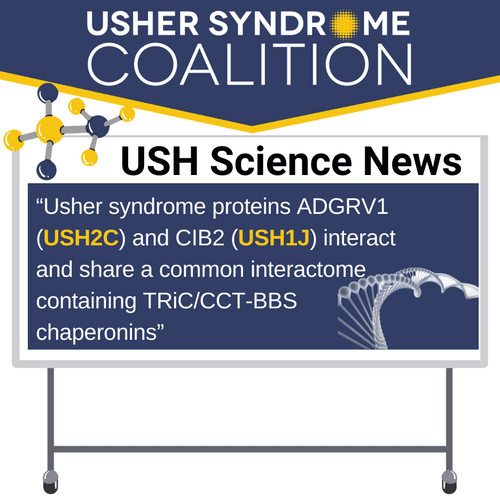Grounded in Science
A balance of research news and well-being for the Usher syndrome community.
Happy November! This is a month many associate with gratitude and thankfulness. We at the Usher Syndrome Coalition are deeply appreciative to have you as a cherished member of our ever-expanding global Usher community.
In case you missed it, we recently shared an exciting update: the USH2024 Connections Conference is just around the corner! This gathering will take place in Rochester, New York, offering an enriching experience for those who can join us in person. For those who prefer the convenience of attending online, the conference will also be live-streamed, ensuring you can participate from the comfort of your own space.
USH2024 participants have the choice to register for IN-PERSON or VIRTUAL access here. To get a sense of what you might expect at the USH2024 event, you can check out the USH2022 recap and recordings.
Thank you for being a vital part of our community. We look forward to connecting with you at this remarkable event and continuing our journey together.
Have you joined the Usher Syndrome Coalition Discord Community Server? It’s a safe place for the community to connect with each other. Join here: https://discord.gg/czwHGaDu7W
Research Spotlight
NAC Attack
Johns Hopkins University is recruiting for “NAC Attack, A Multicenter Placebo-Controlled Clinical Trial to Test Oral N-Acetylcysteine (NAC) in Patients with Retinitis Pigmentosa (RP).” This study will test whether taking NAC long-term can slow the progression of vision loss in a person with RP. N-acetylcysteine is a strong antioxidant that is FDA-approved for acetaminophen (paracetamol) overdose.
NAC is being explored as a potential treatment approach for retinitis pigmentosa. In RP, mutations -or mistakes in the genetic code- cause degeneration of rod photoreceptors which are responsible for vision in dim lighting, resulting in night blindness. After rod photoreceptors are eliminated, gradual degeneration of cone photoreceptors occurs, gradually narrowing peripheral vision and eventually causing tunnel vision. Oxidative stress contributes to cone degeneration and, ultimately, loss of vision. NAC has been shown to reduce oxidative stress, and orally administered NAC in a mouse model of RP slowed cone degeneration.
In a phase I clinical trial, patients with RP were given NAC orally for 6 months; it was well-tolerated and even indicated small improvements in visual acuity in the retina. This suggests that long-term administration of NAC may promote survival and maintenance of cone function in RP. NAC Attack is a phase III, multicenter, randomized, placebo-controlled trial that will determine if oral NAC provides benefit and is safe in patients with RP.
Watch Dr. Peter Campochiaro’s presentation from the USH2022 Connections Conference to learn more about this clinical trial:
In Case You Missed It: Science News Feature
Usher syndrome proteins ADGRV1 (USH2C) and CIB2 (USH1J) interact and share a common interactome containing TRiC/CCT-BBS chaperonins
June 22, 2023: Mutations in the genes CIB2 and ADGRV1 have been described as causative for Usher syndrome subtypes USH1J and USH2C, respectively. The researchers set out to identify how these proteins function and found that these proteins work together in common pathways. Further investigation showed these proteins interact together in light-sensitive cells in the retina.
What this means for Usher syndrome: This study expands our understanding of the function of molecules associated with Usher syndrome. This information may help researchers identify possible targets for the development of treatments.
DISCLAIMER: The Usher Syndrome Coalition does not provide medical advice nor promote treatment methods. USH Science News is intended to help summarize more complex literature for the community to use at their own discretion.
For more science news, check out our Science News page, organized by treatment approach and type of Usher syndrome.
On Well-Being: Meet the Team!
As we celebrate a year of Grounded in Science Newsletters, we recognize that we touch on tough topics monthly. In the interest of transparency, we want to introduce you to the team behind the Grounded in Science and Well-Being series. This group, from diverse backgrounds, reports relevant research to the community...
USH Life Hack of the Month
(Send your USH life hacks to info@usher-syndrome.org.)
“Learn how to type on your computer without needing to look at the keys. This makes it easier to follow what you are writing on the screen (or with TalkBack/ VoiceOver/screenreaders) and prevent neck strain from having to look up and down frequently.”- Monica P, USH2A








